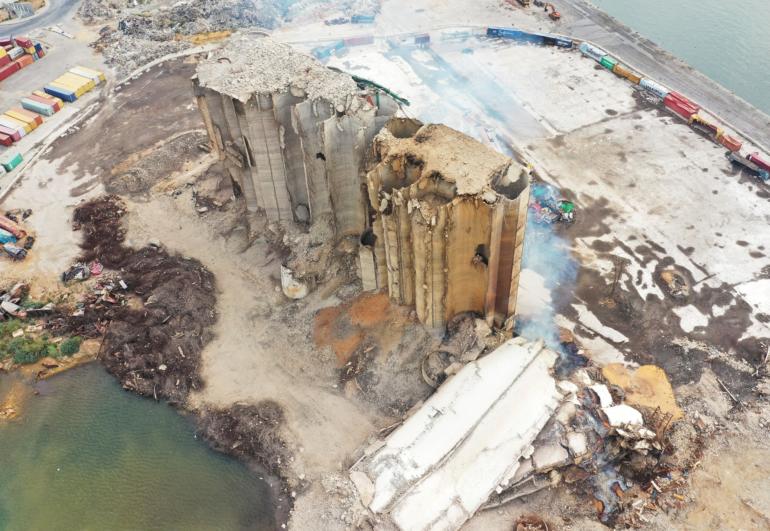August 4th, 2020 — a fire in Beirut’s port spreads to a warehouse storing ammonium nitrate, causing an explosion and shockwave — destroying thousands of homes and businesses.
More than 200 people were killed – thousands wounded. Two years later, the emotional toll on the families lingers, while the case remains unsolved. We’ll have more on that later in the program. But first a look at some of the broader challenges facing the country, including an economy The World Bank calls the worst the world has seen in 100 years.
We spoke with Lebanese Minister of Foreign Affairs and Emigrants Abdallah Bou Habib.
To discuss:
- Nabeel Khoury is a former U.S. diplomat. He’s currently a non-resident Senior Fellow at the Atlantic Council and Arab Center in Washington, DC.
- Ronnie Hammad founded the Sublime Institute, an international consulting firm. He previously served as an international development advisor at The World Bank.
- Nadim Mohsen is a political commentator and lecturer at Lebanese American University where he focuses on philosophy and cultural studies.
For more:
#UPDATE Lebanon marked two years on Thursday since a massive explosion ripped through its capital #Beirut, a grim anniversary marked by angry protests and the dramatic collapse of blast-damaged grain silos in a cloud of dust https://t.co/BKAclTykMd pic.twitter.com/2k2yh4YMDO
— AFP News Agency (@AFP) August 4, 2022
Two years after Beirut mega-blast, Lebanon hits new lows | The Guardian Nigeria News – Nigeria and World News https://t.co/plL23l5I1C
— The Guardian Nigeria (@GuardianNigeria) August 4, 2022
The first cargo of grain to leave Ukraine since the Russian invasion is expected to dock this week in Lebanon, completing a test run for a deal aimed at alleviating the global food crisis https://t.co/SgaATPoIB6
— The Wall Street Journal (@WSJ) August 4, 2022
 CGTN America
CGTN America

